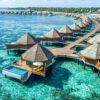What is South Korea most famous for?
South Korea is renowned for several notable aspects that span culture, technology, and cuisine: –
- K-Pop and Entertainment: – South Korea has a massive influence on global pop culture, primarily through K-Pop music, with bands like BTS and BLACKPINK enjoying worldwide fame. The Korean Wave (Hallyu) also includes popular TV dramas and movies, such as “Parasite,” which won the Academy Award for Best Picture in 2020.
- Technology and Innovation: – South Korea is a global leader in technology and innovation. Companies like Samsung, LG, and Hyundai are prominent in the electronics and automotive industries. The country is known for its advanced infrastructure, high-speed internet, and leadership in 5G technology.
- Cuisine: – Korean food is celebrated globally for its unique flavors and health benefits. Dishes like kimchi, bibimbap, bulgogi, and Korean barbecue are popular worldwide. Additionally, South Korea has a vibrant street food culture.
- Beauty and Fashion: – South Korea is a major player in the beauty and fashion industry. Korean skincare products and cosmetics, often referred to as K-beauty, are highly sought after for their innovation and quality. Korean fashion is also influential, with Seoul Fashion Week gaining international attention.
- Cultural Heritage: – South Korea has a rich cultural heritage, with historic sites such as Gyeongbokgung Palace, traditional hanbok clothing, and UNESCO World Heritage Sites like the Jongmyo Shrine and the historic villages of Hahoe and Yangdong.
- Education and Work Ethic: – South Korea is known for its rigorous education system and strong work ethic. The country places a high value on education, which has contributed to its rapid economic development.
- Gaming and E-Sports: – South Korea is a hub for gaming and e-sports. The country has a thriving gaming culture, with professional leagues and tournaments, particularly in games like StarCraft and League of Legends.
- Tourism: – South Korea attracts tourists with its blend of modernity and tradition. Cities like Seoul and Busan offer bustling urban experiences, while places like Jeju Island provide natural beauty and relaxation.
These facets collectively highlight South Korea’s significant contributions to the global landscape across various sectors.














